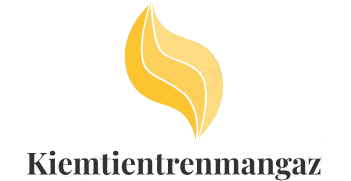The Rise of MOOCs (Massive Open Online Courses)
Education has undergone a significant transformation in recent years, with the advent of Massive Open Online Courses (MOOCs) revolutionizing the way individuals learn and acquire new skills. MOOCs have gained immense popularity for their accessibility, flexibility, and affordability, making high-quality education available to a global audience. In this comprehensive guide, we will delve into the rise of MOOCs, exploring their origins, impact, challenges, and future prospects.
The Origins of MOOCs

The concept of MOOCs first emerged in the early 2000s, pioneered by academics and technologists seeking to democratize education. The term “MOOC” was coined to describe courses that were open to anyone with internet access, regardless of their geographic location or educational background. The first MOOCs were developed by educators such as George Siemens and Stephen Downes, who offered online courses that attracted thousands of participants.
One of the most influential early MOOC platforms was Coursera, founded in 2012 by Stanford University professors Andrew Ng and Daphne Koller. Coursera partnered with top universities to offer a wide range of courses in various disciplines, attracting millions of learners from around the world. Other major players in the MOOC space include edX, Udacity, and FutureLearn, each offering a diverse selection of courses taught by renowned academics.
The Impact of MOOCs on Education

MOOCs have democratized access to education, breaking down barriers that once limited learning opportunities. Learners from diverse backgrounds can now access high-quality courses from top institutions, expanding their knowledge and skills in a wide range of subjects. This accessibility has been particularly beneficial for individuals in developing countries or remote areas where traditional educational resources are scarce.
Furthermore, MOOCs have revolutionized the way education is delivered, shifting the focus from traditional classroom settings to online platforms. This shift has enabled educators to reach a larger audience, engage with students in innovative ways, and incorporate multimedia elements into their teaching. MOOCs also offer a more personalized learning experience, allowing students to learn at their own pace and revisit materials as needed.
Another significant impact of MOOCs is their role in upskilling and reskilling the workforce. As the job market evolves and new skills become increasingly important, MOOCs provide a valuable resource for individuals looking to enhance their skill set or transition to a new career. Employers also recognize the value of MOOCs, with many offering professional development opportunities through online courses.
The Challenges of MOOCs

While MOOCs have transformed education in many ways, they also face challenges and limitations that impact their effectiveness. One of the primary challenges of MOOCs is low completion rates, with many learners enrolling in courses but failing to finish them. This phenomenon, known as the “dropout rate,” is a common issue in online education and can be attributed to factors such as lack of motivation, time constraints, or difficulty understanding the material.
Another challenge facing MOOCs is the issue of credentialing and accreditation. While some MOOC platforms offer certificates of completion for courses, these credentials may not always be recognized by employers or educational institutions. As a result, some learners may question the value of investing time and effort in MOOCs if they do not lead to tangible outcomes or career advancement.
Additionally, MOOCs raise concerns about equity and access, as not all learners have equal opportunities to participate in online courses. Factors such as digital literacy, internet connectivity, and language barriers can create barriers for individuals seeking to engage in MOOCs. Addressing these disparities is essential to ensure that MOOCs remain inclusive and accessible to all learners.
The Future of MOOCs

Despite the challenges they face, MOOCs continue to evolve and adapt to meet the changing needs of learners and educators. The future of MOOCs is likely to involve greater personalization and customization, with platforms using data analytics and artificial intelligence to tailor courses to individual learning styles. This adaptive learning approach can enhance the effectiveness of online education and improve student outcomes.
Another trend in the future of MOOCs is the integration of virtual reality and augmented reality technologies into course content. These immersive technologies have the potential to create engaging and interactive learning experiences, allowing students to explore complex concepts in a more dynamic and hands-on way. Virtual labs, simulations, and virtual field trips are just a few examples of how VR and AR can enhance the educational experience.
Furthermore, MOOC platforms are likely to expand their partnerships with employers and industry organizations to offer courses that are directly relevant to the needs of the workforce. By collaborating with companies to develop content and certifications, MOOCs can bridge the gap between education and employment, providing learners with the skills and credentials they need to succeed in the job market.
Expert Opinions
According to leading education experts, MOOCs have the potential to revolutionize education by making high-quality learning experiences accessible to a global audience. Dr. Rebecca Schuman, a renowned educator and author, believes that MOOCs have opened up new possibilities for lifelong learning and professional development. She emphasizes the importance of leveraging technology to expand educational opportunities and reach underserved populations.
Dr. John Hattie, an influential education researcher, highlights the significance of data-driven approaches in improving the effectiveness of MOOCs. By analyzing learner data and feedback, educators can identify areas for improvement, personalize instruction, and enhance student engagement. Dr. Hattie emphasizes the importance of continuous assessment and feedback in optimizing the learning experience.
Conclusion
In conclusion, the rise of MOOCs has had a profound impact on education, offering new opportunities for learners to access high-quality courses and expand their knowledge. Despite facing challenges such as low completion rates and issues of credentialing, MOOCs continue to evolve and innovate, shaping the future of online education. As technology advances and new trends emerge, MOOCs are poised to play a crucial role in upskilling the workforce, fostering lifelong learning, and promoting global access to education.
To wrap things up, the future of MOOCs holds great promise for transforming education and empowering individuals to reach their full potential. By embracing innovation, collaboration, and inclusivity, MOOCs can continue to drive positive change in the world of online learning.




